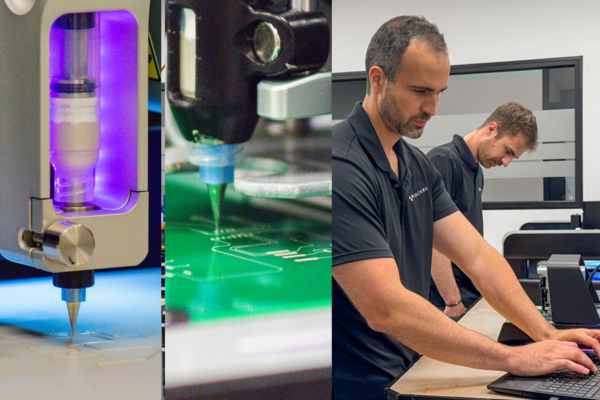
Help pours in from around the world to develop new COVID-19 test
Waterloo researchers lead open-source project to improve COVID-19 screening using artificial intelligence (AI) and chest x-rays

Waterloo researchers lead open-source project to improve COVID-19 screening using artificial intelligence (AI) and chest x-rays
By Brian Caldwell Faculty of EngineeringOffers of assistance have been pouring in from around the world since researchers at the University of Waterloo launched an open-source project last week to improve COVID-19 screening using artificial intelligence (AI).
“My goal was to engage people worldwide to push this initiative along and I’m getting my wish,” says Alexander Wong, a systems design engineering professor who heads the Vision and Image Processing (VIP) Lab at Waterloo. “We’ve received overwhelming support and positive feedback, and we’re using it all to improve the software.”
The researchers partnered with Waterloo company DarwinAI to develop and publicly release COVID-Net, the AI software that can detect coronavirus infections from chest x-rays.
A week later, their effort has generated hundreds of messages from researchers, scientists and AI experts from as far away as China and India. Many of them have downloaded the software and are working to test and improve it.
Researchers at VIP and DarwinAI, which was co-founded by Wong, hope to build on promising initial results for the AI software with help that so far includes computing power and expertise offered by major technology companies.
The researchers have also used feedback that will help increase the size of a dataset at the heart of the technology to more than 10,000 chest radiography images.
“It’s definitely working,” says Wong, a founding member of the Waterloo Artificial Intelligence Institute (Waterloo.ai). “I’ve been looking at emails and messages non-stop.”
AI-assisted x-ray screening is meant to augment the polymerase chain reaction (PCR) swab tests now in short supply in many areas of the world on the front lines of the coronavirus pandemic.
“Chest radiography can be conducted quickly and is relatively low-cost and widely available,” Wong says. “It is already used by several countries to complement PCR tests. Augmenting it with AI to improve screening accuracy could have a lot of value.”
In addition to the deep-learning AI software researchers developed to detect COVID-19 from chest x-ray images, they made their dataset and a scientific paper on their work publicly available on GitHub at https://github.com/lindawangg/COVID-Net.
"Our hope is that COVID-Net will be used and built upon by clinicians, researchers and citizen data scientists," says Wong. "Ideally, this tool will allow us to accelerate the global use and development of effective, radiography-based COVID-19 screening solutions and treatment of those who need it the most."
Sheldon Fernandez, a Waterloo Engineering alumnus and CEO of DarwinAI, says the open-source initiative was launched after "grappling with how to best deploy our skills in service of the present crisis."
In order to increase confidence in the new technology, researchers are also making available an explainability tool that shows how their AI technology reaches its COVID-19 detection decisions.
Wong said the explainability tool should build trust in the system and could uncover new insights into visual indicators associated with COVID-19 infections.

Read more
Here are the people and events behind some of this year’s most compelling Waterloo stories

Read more
Waterloo Engineering alum wears her iron ring proudly while building her career in quantum tech in Germany

Read more
Voltera prints electronics making prototyping faster and more affordable — accelerating research to market-ready solutions
The University of Waterloo acknowledges that much of our work takes place on the traditional territory of the Neutral, Anishinaabeg, and Haudenosaunee peoples. Our main campus is situated on the Haldimand Tract, the land granted to the Six Nations that includes six miles on each side of the Grand River. Our active work toward reconciliation takes place across our campuses through research, learning, teaching, and community building, and is co-ordinated within the Office of Indigenous Relations.